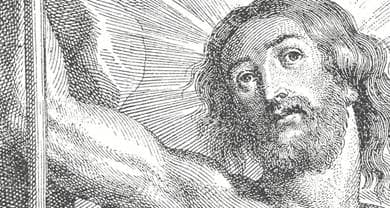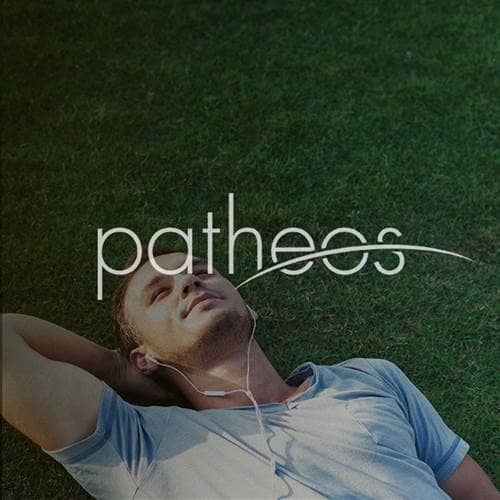- Trending:
- Pope Leo Xiv
- |
- Israel
- |
- Trump
- |
- Social Justice
- |
- Peace
- |
- Love

RELIGION LIBRARY
Anglican/Episcopalian
Sacred Narratives
The sacred narrative of Anglicanism traditionally has been, broadly speaking, that of all Christian traditions. The triune God--one God eternally subsisting in three persons, the Father, the Son, and the Holy Spirit--created the world and all things in it, and created them good. Humanity was created male and female in God's own image, capable of being (and indeed already being) in relationship with God, but with freedom of choice. They chose poorly, rebelling against God's command and severing the human relationship with God, both for themselves and for their progeny. People became subject to evil and death, and the perfection of creation was lost in humanity's "fall."
But because God mercifully loves the world, God sent God's only and eternal Son to take on human flesh, to live as a human person (except without sin), to die a sacrificial death and thereby reconcile humanity to God the Father, to rise from the dead and thereby conquer death, and to ascend to heaven, there to intercede with God the Father on behalf of God's people. All those who believe in this savior Jesus Christ are born anew, and will not perish but have eternal life (John 3:16). Believers constitute one body in Christ, the universal Church. On the appointed day, Christ will return to judge both the living and the dead, all creation will be made new, and the kingdom of God will never end.
There are, of course, many variations on this theme within Christianity. The role of a Christian's works in salvation, the "geography" of the afterlife, just how pervasive are the effects of the fall...these and many other issues have been fodder for centuries of disagreement. In many ways, Anglicanism mirrors this diversity. Early in its history, the Anglican sacred narrative was that of Reformed Protestantism: the effects of the fall are pervasive and foreclose any possibility that the sinner may contribute to his or her own salvation. Arminian views, which allow the sinner some role in salvation (although not without God's grace), later gained prominence. In addition, Catholic and Eastern Orthodox perspectives on the Christian sacred narrative contribute to the patchwork of Anglican theology.
Moreover, there have been groups within Anglicanism that have rejected significant features of the traditional sacred narrative ever since rationalism entered English thought in the late 17th century. The extent of the diversity has increased vastly over the last century or so with the impact of Liberalism. Indeed, Anglicanism's distinctive approach to the narrative exists, in part, in this variety itself, this lack of a definitive systematic theology (detailed working out of the narrative). It might even be said that the sacred narrative of Anglicanism is found only in the Apostles' and Nicene Creeds, or even simply in the narrative of religious diversity, and that anything more (including the preceding paragraphs) is a derivation, an opinion, and cannot claim to represent Anglicanism.
Anglicanism's approach to the narrative is also found in what has been called the Anglican theological method. This method entails drawing upon scripture, tradition, and reason--the so-called "three-legged stool." Richard Hooker (1554-1600), an English clergyman whose works became influential long after his death, first announced these three elements in Book V of his Of the Laws of Ecclesiastical Polity. He saw them as sources of authority in matters of doctrine and worship. Doctrine, he said, is unchangeable, modes of worship changeable. But in both cases the sources of authority are, first, what scripture plainly sets forth, second, that which can necessarily be concluded by force of reason, and third, the pronouncements of the Church. Notably, for Hooker, scripture had pride of place, and he gave no indication that the three elements were meant to be intertwined or interpretive of one another.
The three-fold approach has evolved significantly since Hooker into competing versions. Some hold that reason is the interpreter of both scripture and tradition, effectively giving reason pride of place. Others emphasize the equality of the three, and still others view them as intertwined. Another significant variation is the addition in recent decades of a fourth leg to the stool (or strand to the rope): experience. This appears to stem from earlier assertions that the tradition of the Church should not consist in a static reference to the early Church, but must include the Church's experience. Experience, it seems, eventually took on a life of its own.
Finally, Anglicanism's distinctive take on the Christian sacred narrative entails a particular emphasis on the visible unity of Christ's body, the Church. Anglicanism takes very seriously its claim to be part of the One, Holy, Catholic, and Apostolic Church, and seeks to manifest that claim visibly. This emphasis is found in what has been discussed already, for a broad approach to the sacred narrative allows people of a variety of beliefs to worship in the same Church, and the outward confession of the historic Creeds unites Anglicans to Christians across the centuries.
Another manifestation of the importance of visible unity is the Anglican liturgy. Although there are numerous versions of the Book of Common Prayer (BCP) around the Anglican Communion, all of them are based on Thomas Cranmer's work and have significant elements in common.
The sacrament of the Eucharist is also a manifestation of visible unity. Particular beliefs about the Eucharist, such as acceptance or rejection of the Real Presence of Christ, are not required in Anglicanism, and open communion is generally the practice, meaning that all, or all who are baptized, may partake.
Finally, Anglicanism's embracing of apostolic succession shows the importance of visible unity. Anglicans around the world are united by the bonds among primates (generally archbishops) and bishops. The historic episcopate visibly unites Anglicanism to the Church in all times, back to the apostles and to Christ himself.
Study Questions:
1. How is the sacred narrative of Anglicanism similar to the sacred narrative of Christianity?
2. Why is Jesus important in the Anglican sacred narrative?
3. Do Anglicans believe sinners have power over their own salvation? Why or why not?
4. What is the Nicene Creed? What does it reveal about Anglican beliefs?
5. Why does Anglicanism claim to be a part of the Holy, Catholic, and Apostolic Church?










